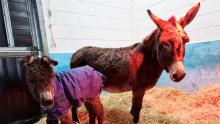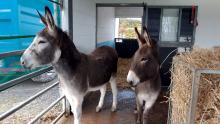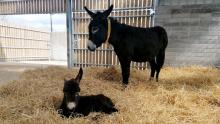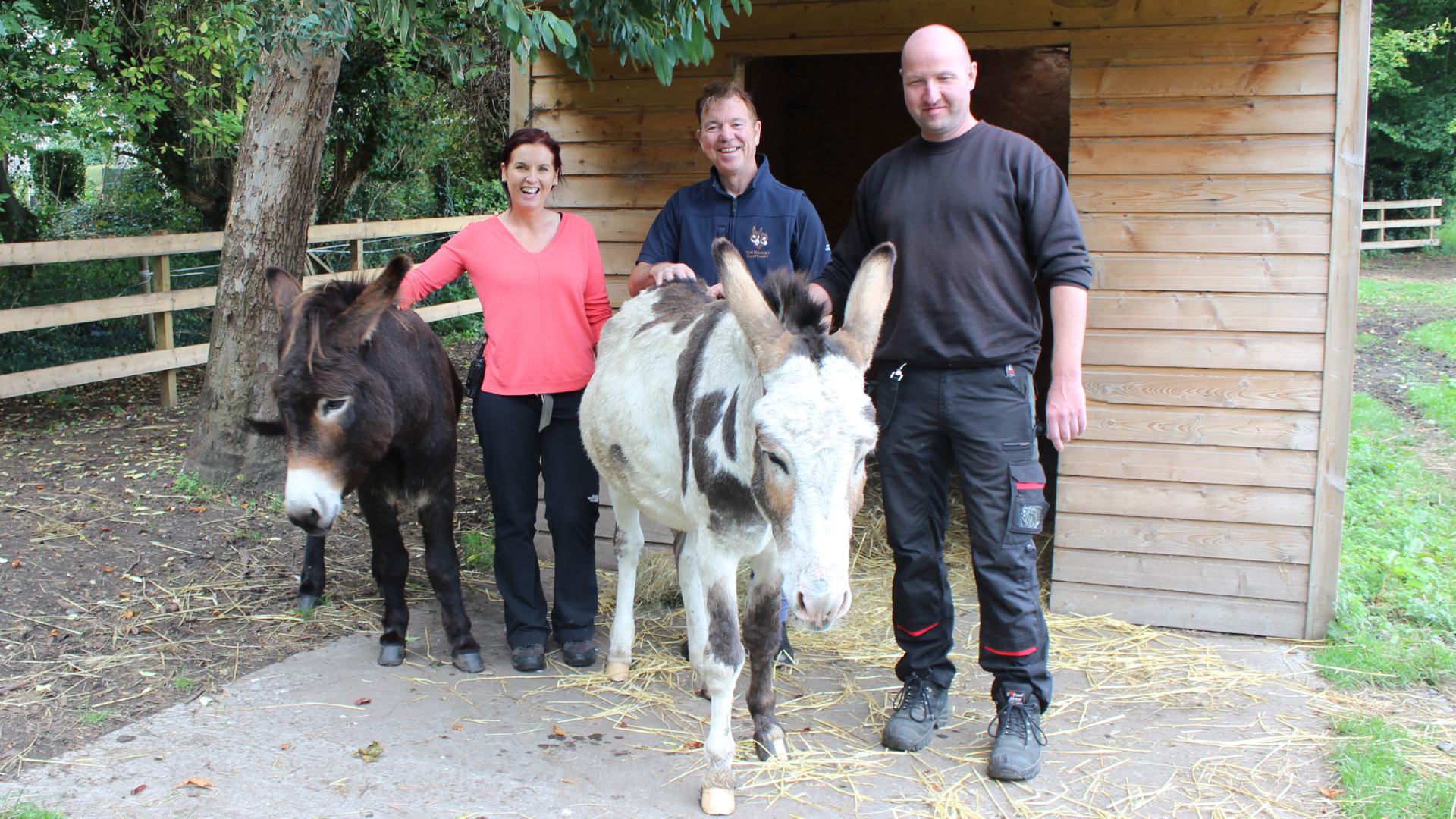
Since being rehomed at the psychiatric hospital in Dublin six years ago, Fergus and Foley have shown how both donkeys and people can benefit from animal assisted activities.
As a result of a complaint case from County Tipperary, a sweet skewbald donkey – later named Foley - was relinquished into our care in September 2015.
The same month, a handsome brown donkey - later named Fergus - arrived in our care from Northern Ireland.
The two donkeys were introduced to the herd, and they soon became the best of friends.
in 2016, Fergus and Foley were rehomed as a bonded pair to the 'Garden Project' at the Psychiatric Hospital in Dublin.
On the 30-acre site are beautifully tended gardens, polytunnels, animal enclosures, and paddocks.
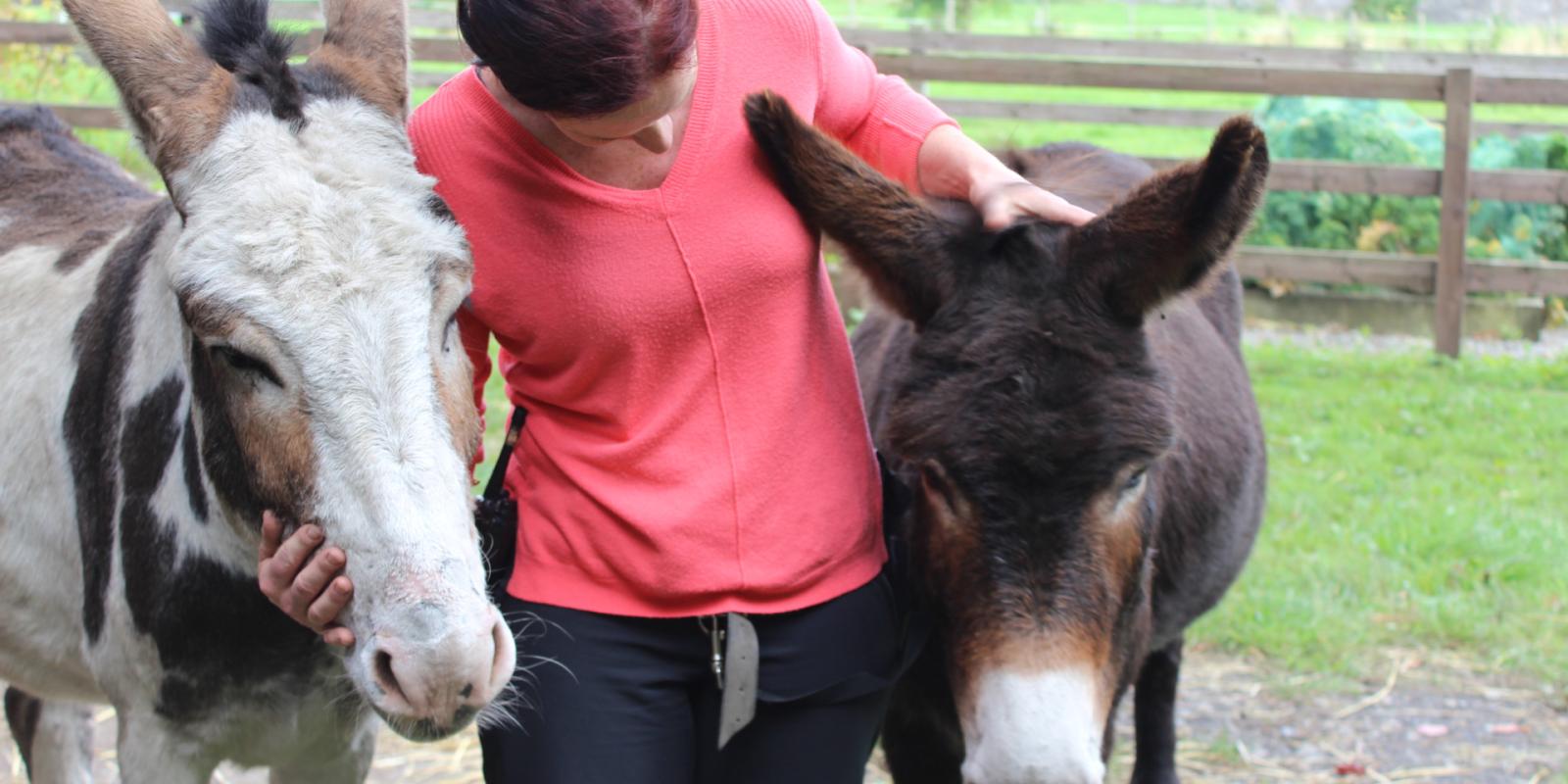
Jacqui Cahill and Pat Farrell are clinical nurses with backgrounds in psychiatric nursing. They are also Garden Project Leads at the hospital and are aware of the benefits of animal assisted activities as part of patient rehabilitation.
With the support of hospital senior management and the Carers Group, Jacqui contacted The Donkey Sanctuary in 2016 to learn more about our Rehoming Scheme.
Both Jacqui and Pat attended our Donkey Care Course and after working closely with our Welfare Team, Foley and Fergus moved from our sanctuary to their new home in Dublin.
Six years on, it is clear that Foley and Fergus are well cared for and loved by all the residents and staff.
Their shelter was purpose-built by Pat and some of the patients who continue to contribute to the daily care of the donkeys. Tasks range from cleaning out the shelter to grooming and feeding Foley and Fergus.
For their charismatic nature to shine, donkeys require positive human company. They will show their affection to humans if they have a warm and welcoming home, are handled correctly, and experience kindness from an early age.
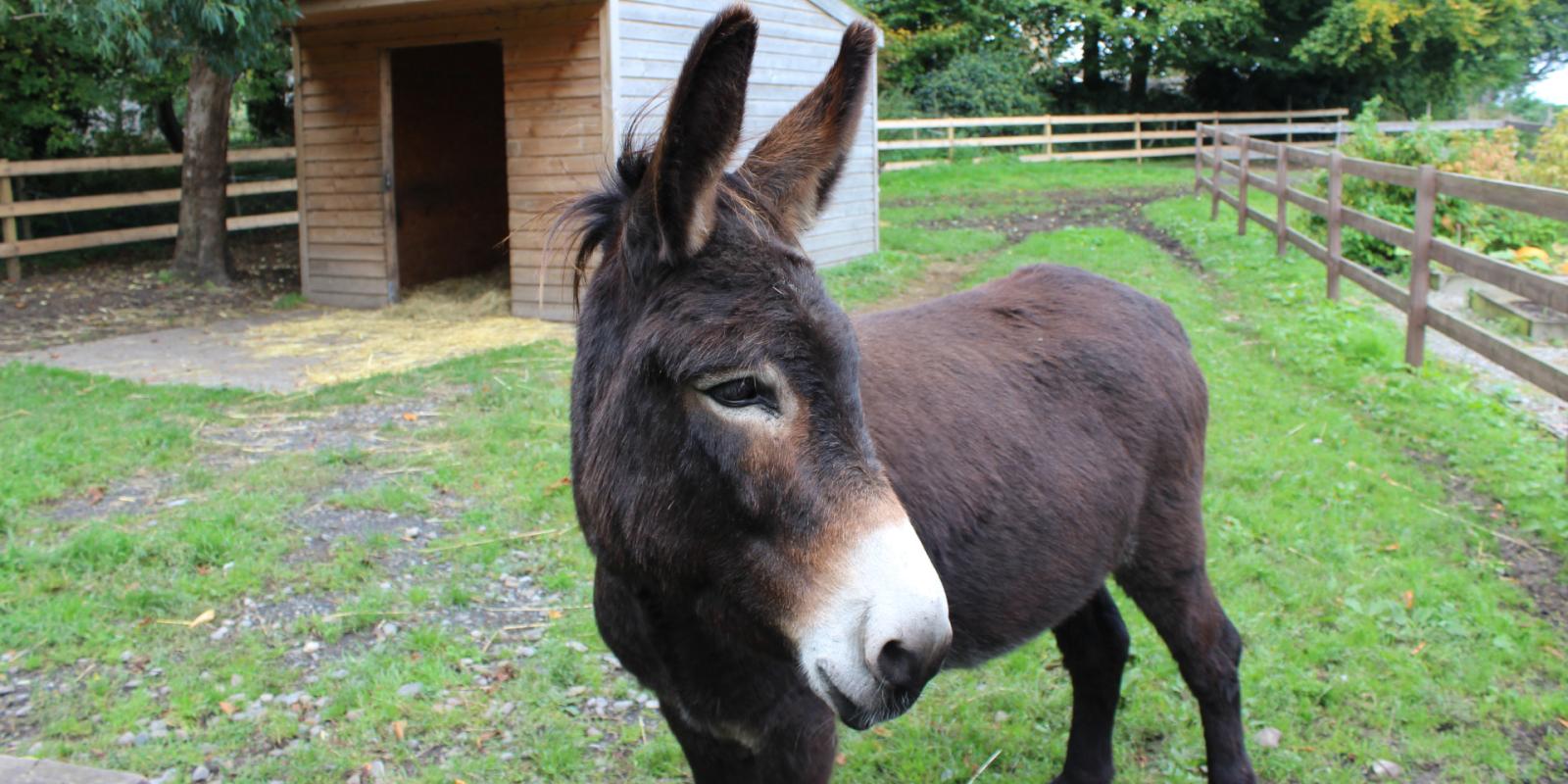
Fergus and Foley are not the only ones who have benefited from their surroundings, as the donkeys have also made a positive impact on the hospital residents.
Jacqui says: “Caring for the donkeys is a very social activity as patients work in teams to look after them. It also helps build patient self-esteem and confidence.”
She adds: “Interacting with the donkeys offers the patients an opportunity for affection which can brighten the day.”
Donkeys have an innate emotional intelligence that can help develop key life skills in humans, including self-awareness, communication, empathy, and managing emotions.
In addition, they can help people to develop empathetic relationships, which both the person and the donkey can benefit from.
Joe Prendergast, Donkey Welfare Adviser, says: “It is a privilege to see our donkeys thriving in this specialist mental health facility and that both donkeys and residents benefit from interacting with each other.”

